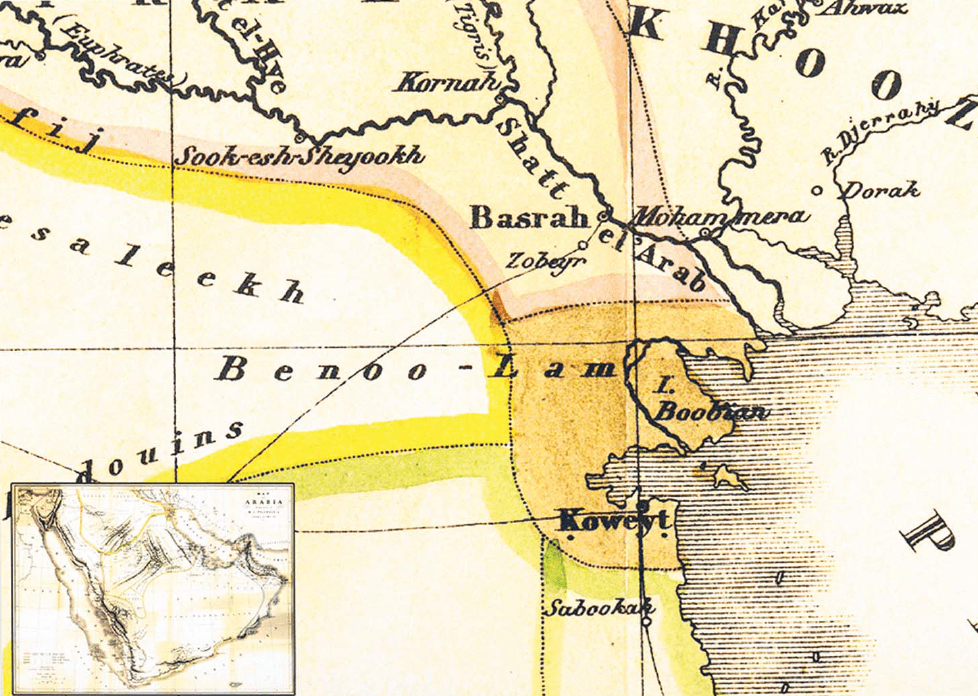30/09/2023
30/09/2023
KUWAIT CITY, Sept 30: Academics have refuted the historic and legal allegations in the recent baseless declaration made by Iraq’s supreme federal court regarding the treaty for regulating navigation in Khor Abdullah – inked by Kuwait and Iraq in 2012. The academic figures, in an interview by Kuwait News Agency and Kuwait Television organized by the Kuwaiti Research and Studies Center on Saturday, lauded United Nations Security Council Resolution 833 issued in 1993 on demarcating the international borders between the two countries and respecting the international law regarding the international navigation.

In this respect, Dr. Ali Al-Rashidi, a law professor at Kuwait University, said during the interview that the treaty had been worked out after consultations between the two countries and that it was endorsed by the Iraqi parliament and published by the official Iraqi gazette. It had also been delivered to the UN by Iraq’s permanent delegate at the international organization while affirming that it was compulsory and that Iraq was determined to implement it.
Dr. Al-Rashidi added that the Iraqi federal court in 2014, following a challenge forwarded by a member of the Iraqi parliament, stated that the law issued by the parliament for endorsing the treaty was sufficient from a legal perspective in line with the Iraqi Constitution, thus the tribunal explained that it did not contravene the constitution.
Clarifying further, Dr. Al-Rashidi noted that following the court decision in 2014, there was consensus on the agreement by the three authorities in Iraq, where the government approved it, the parliament endorsed the accord and the Supreme Court issued an irreversible rule, stipulating soundness of the treaty constitutional status. Moreover, he affirmed that four factors challenge the latest court rule, noting that the recent appeal was presented by the same Iraqi MP who had filed the previous one; the reasons for the new contestation are the same as the past ones.
Additionally, the latest court decision contradicted the Vienna Convention for Treaties (1969) which affirmed that any treaty is compelling to the signatory parties. Meanwhile, KU’s history professor Dr. Abdullah Al-Najdi said it was not the first time that Iraq would make such allegations against Kuwait, would try to belittle the State of Kuwait and ransack its historic rights along the borders. The controversial historical narration presented by the Iraqi tribunal should not have come from a court that issues technical rules that take into consideration the constitution and its provisions, “unless there is an illicit desire that reminds us of the night ahead of the flagrant Iraqi aggression in 1990,” and the previous breaches by the Iraqi governments that attempted to belittle Kuwait’s role and abstain from demarcating the borders between the two countries.
Dr. Al-Najdi indicated that 1973 maps showed that Kuwait’s borders stretched to Khor Abdullah. A map by a German scientist in 1818 showed the Arab Peninsula including Kuwait with its borders totally covering Khor Abdullah. During the era of Sheikh Mubarak Al-Sabah, a treaty was signed with Britain and Kuwait’s borders were drawn before the emergence of modern Iraq. Dr. Rashed Al-Sanea, a professor of prime education, said the 1963 treaty stipulated the demarcation of the borders between Kuwait and Iraq and it was endorsed by Kuwaiti and Iraqi officials. Refuting claims that Iraq has no access to the sea, he said that the country has six ports and a shore stretching from Ras Al-Bisheh to Khor Al-Zubair.
Dr. Hailah Al-Mkaimi, a political sciences professor at KU, indicated that the court ruling came as a result of an “internal crisis” in Iraq. She lauded the Kuwaiti Government's firm stand on the issue. Kuwaiti Minister of Foreign Affairs Sheikh Salem Abdullah Al-Jaber Al-Sabah had strongly condemned the bid by the Iraqi court to practically annul the treaty that had been endorsed by the two countries' authorities. He also decried the allegations that came from the tribunal's controversial narration and urged the Iraqi government to tackle the issue and affirm respect for the State of Kuwait's sovereignty. (KUNA)


